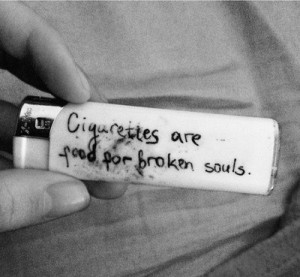Overthinking always proves to be a nuisance for anyone, regardless of your social status or background. Obsessing over that embarrassing thing you wish you’d never said, or obsessing over that compliment you wish you’d said, or obsessing over your child’s future, or obsessing over that job position or raise you know you deserve to have – in the end we all obsess over the same things in life. Some have the luxury in having these thoughts in passing, only to forget about them when kept busy, while others need professional guidance in order to escape their vicious circular thinking.

Obsessive thoughts can be the result of a high stress environment, traumatic occurrence or just out of sheer habit developed at a young age. These invading thoughts may be in the form of an idea, an image, or a memory. It has a mind of it’s own in that when you try to suppress them, they push back even harder to occupy the host in its entirety.
If you are dealing with obsessive thoughts and you do not seek real help, you are running the risk of facing a more serious issue further down the line. Living life at the mercy of your obsessive thoughts can cause you to lose your sense of reality, your motivation to move forward, and you risk suffering from a sever lack of focus. Having a thought replayed like a broken record player in your mine so many times will make you question the validity of yourself and your self worth. Your desire to enjoy life will decline and worse case scenario, you will no longer feel the want to continue your life.
Replacing negative thoughts with positive ones is a lot easier said than done. It takes time but to every problem, there is a solution. It IS possible to retrain our brains to focus on healthy things above soul-deteriorating thoughts. But first, the first step is to acknowledge your need in wanting for yourself, a peace of mind.



 Addiction, contrary to what is thought, can be a learnt behavior. In a family where words are kept behind glasses of Bourbon, there’s a chance drinking could occupy the space reserved for conversation. Drugs are used for coping with the stress of family, work, identity, and everyday life. Addictions are a physical manifestation of an inner mewing. For many addicts, the use of drugs was a form of self-medication, but mutated into self-mutilation.
Addiction, contrary to what is thought, can be a learnt behavior. In a family where words are kept behind glasses of Bourbon, there’s a chance drinking could occupy the space reserved for conversation. Drugs are used for coping with the stress of family, work, identity, and everyday life. Addictions are a physical manifestation of an inner mewing. For many addicts, the use of drugs was a form of self-medication, but mutated into self-mutilation.
 We forget that trends and fads are not static; they are in a mystifying, ever changing waltz. This dance is choreographed by lionized opinions from people we may never meet. Fads and trends tell us what to eat, who to date, what to wear, and what is and is not socially acceptable, for the moment. There’s no way to truly “be yourself” if the self you are molding is constantly shaped by the opinions and decisions of others. The problem with living someone else’s version of you is that we are not one size fits all personalities. What works for one person, might not work for another. We set ourselves up for a miserable life when we try to tailor, or hem, who we are so people will like us, society will be pleased with us, the church won’t judge us, and our friends will accept us.
We forget that trends and fads are not static; they are in a mystifying, ever changing waltz. This dance is choreographed by lionized opinions from people we may never meet. Fads and trends tell us what to eat, who to date, what to wear, and what is and is not socially acceptable, for the moment. There’s no way to truly “be yourself” if the self you are molding is constantly shaped by the opinions and decisions of others. The problem with living someone else’s version of you is that we are not one size fits all personalities. What works for one person, might not work for another. We set ourselves up for a miserable life when we try to tailor, or hem, who we are so people will like us, society will be pleased with us, the church won’t judge us, and our friends will accept us.